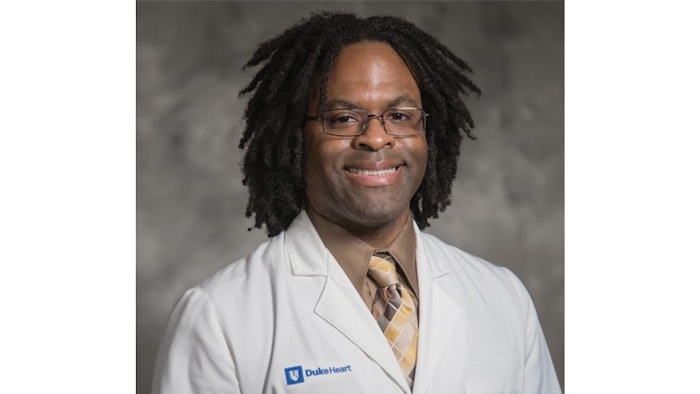Disparity detective work
Pinpointing disparities by intention for better outcomes

What will it take to eliminate disparities in cardiovascular disease and stroke mortality care?
The first step is to admit they exist, said Larry R. Jackson, II, MD, MHSc, associate professor of medicine at Duke University School of Medicine in Durham, North Carolina. Dr. Jackson is the speaker at Saturday’s session, Eliminating Health Inequity in Cardiovascular Disease.
The U.S. saw the largest decrease in life expectancy during the COVID-19 pandemic, with Black and Hispanic people affected the most. Since the 1980s, there has also been widening disparities in cardiovascular disease mortality, stroke mortality and maternal mortality in rural counties versus urban counties.
The next step in eliminating health disparities, according to Dr. Jackson, should be to gain a better understanding of what continues to drive disparities in cardiovascular disease.
In advance of his session, Dr. Jackson shared his thoughts with Scientific Sessions Daily News on the work that is still required.
Q: Racial and ethnic disparities in cardiovascular disease have been long-standing and persistent. Where do we stand today?
Dr. Jackson: We are disseminating the message better that these differences exist. The reason I don’t frame them as “disparities” is because we don’t know — in most instances — what’s driving those differences. What I mean by that is, at their core, disparities are being driven by something that is typically, fundamentally unjust, and almost always links back to social, structural and environmental determinants. So, I hesitate to use the word “disparities” until I understand the root cause.
Q: What do you believe is the medical community’s role in moving health equity and social justice forward?
Dr. Jackson: We must continue research into health disparities, specifically understanding why a particular disparity exists. For example, while Black individuals cluster a higher burden of risk factors associated with atrial fibrillation, numerous studies have demonstrated a low incidence and prevalence of atrial fibrillation in Black individuals. This is called the atrial fibrillation paradox. Likewise, we know Black individuals with atrial fibrillation have lower utilization of oral anticoagulation for stroke reduction and rhythm control strategies such as AF ablation. More research is needed to understand why the atrial fibrillation paradox exist and why Black individuals have a lower utilization of stroke reduction and rhythm control strategies for atrial fibrillation.
Q: What research innovations and data-driven interventions exist to eliminate health disparities?
Dr. Jackson: In terms of research innovations, very little has been done. There have been a few recent studies, such as the one from Kevin Thomas, MD, and his VIVID trial. The objective of VIVID was to assess the effectiveness of a video decision support tool for Black patients eligible for an implantable cardioverter-defibrillator. There’s also Paul Wang, MD, at Stanford, and his intervention-based aid regarding oral anticoagulation in stroke patients with AFib. These are good examples and the most contemporary of interventions aimed at addressing racial and ethnic disparities in cardiovascular disease.
Q: How do we successfully diversify the health care workforce?
Dr. Jackson: Health care diversity is very important as it is associated with many beneficial aspects, including better care for diverse populations, better problem-solving given diversity of thought, opinions and ideas, better recruitment and retention, specifically of historically marginalized populations, and overall better results in patient care in an increasingly diverse population. Diversifying the health care workforce requires support from the highest levels and leadership, including local governments and health systems. There must be an intentional approach with the creation of systems and policies that support diversity and inclusion within health care systems.
Q: Do you have a personal story to share?
Dr. Jackson: Equity is a family affair. My mother and sisters are all involved in education, specifically geared toward improving literacy in underrepresented racial and ethnic groups. My dad was a civil rights attorney, working to diversify the number of lawyers in multiple communities where we grew up in Florida. So, it’s always been a part of our family.











